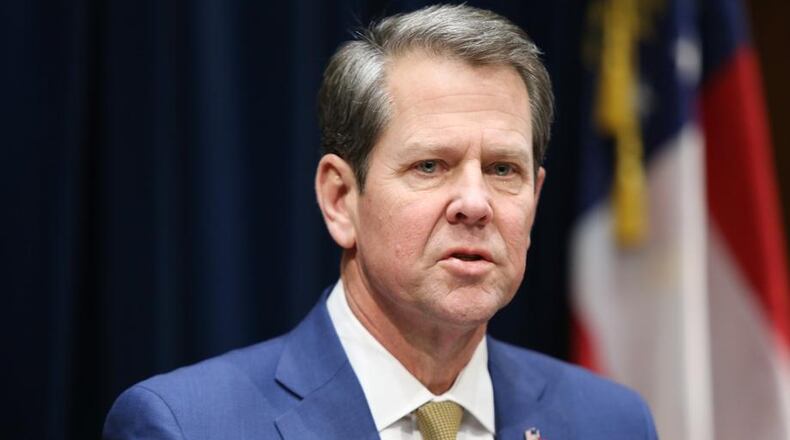Despite some iffy revenue numbers at times during the year, the state ended the recently completed fiscal 2019 with a record nearly $3 billion in its rainy day reserves.
Preliminary figures set the reserves at $2.971 billion for the fiscal year that ended June 30. The reserves are important because they potentially cushion the impact of any economic downturn by helping the state fund everything from schools to health care programs for a quarter of Georgians.
The current reserves equate to funding state government for about a month, which is more than many if not most states have set aside.
There has been a lot of talk nationally about a potential recession coming after a decade of economic growth, and Gov. Brian Kemp has said the state needs to prepare for one in case it happens.
Kemp has ordered state agencies to cut 4 percent from their budgets this year and 6 percent next year. He was recently praised by one of the agencies that rates bonds - money the state borrows for construction projects - for being fiscally proactive.
Some massive enrollment-driven programs — such as K-12 schools, universities and Medicaid, the health care program for the poor and disabled — are exempt from the cuts.
In all, only about 23% of the state-funded portion of the budget was not exempted. Agencies on the hook for cuts include the departments of Agriculture, Corrections, Driver Services, Public Health, public defenders, the Georgia State Patrol, the GBI, most of the Department of Natural Resources, and the administration of K-12 schools and colleges.
The University System of Georgia Board of Regents Tuesday was considering about $26 million in budget cuts to programs such as the Cooperative Extension Service, farm and forestry research, and Georgia Public Broadcasting.
State reserves all but vanished during the Great Recession, which forced the government to lay off and furlough tens of thousands of teachers and state workers. Kemp's predecessor, Gov. Nathan Deal, steadily built savings back up to about $2.5 billion before he left office in January 2019.
Tax collections were up and down during the first half of 2019, leaving the Kemp administration concerned about the state's chances of meeting its budget.
In May, it decided to suspend for a month contributions into the State Health Benefit Plan, which provides health coverage for more than 660,000 teachers, state employees, retirees and their dependents. The one-month "holiday" saved state agencies and school districts about $235 million.
About the Author
Keep Reading
The Latest
Featured


